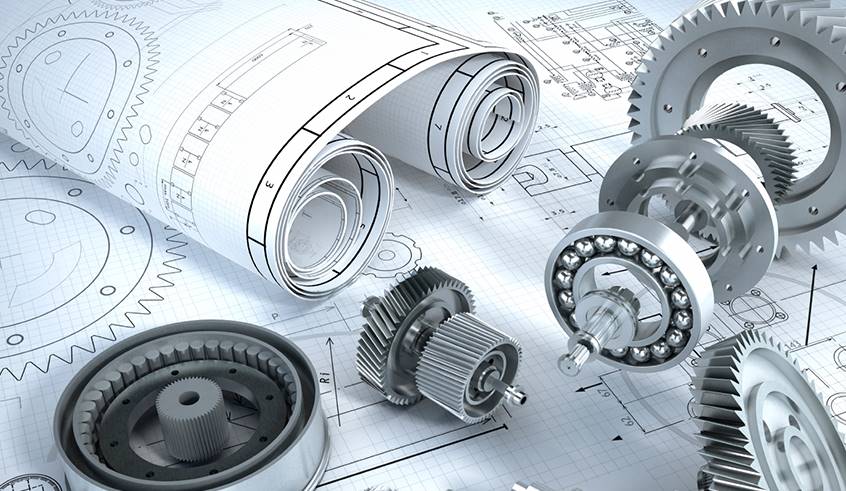Introduction
Biomedical engineering has revolutionized the healthcare industry by merging principles of engineering with medical sciences. While this interdisciplinary field encompasses various domains, mechanical engineers play a critical role in advancing biomedical engineering and transforming healthcare delivery. In this blog post, we will explore the significant contributions of mechanical engineers in biomedical engineering and healthcare, highlighting their expertise, innovations, and impact on improving patient care and well-being.
Design and Development of Medical Devices
Mechanical engineers are instrumental in the design, development, and innovation of medical devices used in diagnosis, treatment, and patient care. From surgical instruments and prosthetics to imaging systems and wearable devices, mechanical engineers apply their knowledge of mechanics, materials, and manufacturing processes to create safe, efficient, and reliable medical devices that enhance healthcare outcomes.
Biomaterials and Biomechanics
Mechanical engineers contribute to the field of biomaterials, which involves the development and characterization of materials used in medical implants, tissue engineering, and drug delivery systems. They work on designing biocompatible materials that can integrate seamlessly with the human body and support healing processes. Additionally, mechanical engineers utilize principles of biomechanics to understand the mechanics of biological systems, such as analyzing the forces exerted on bones or joints to improve the design and functionality of orthopedic implants.
Transforming Civil Engineering Projects: The Power of Blockchain Technology
Medical Imaging and Diagnostic Equipment
Mechanical engineers play a key role in the design and optimization of medical imaging and diagnostic equipment, such as X-ray machines, MRI scanners, ultrasound devices, and CT scanners. They work on improving image quality, reducing patient discomfort, and enhancing the overall performance of these devices through innovations in mechanical and electrical systems, signal processing, and image reconstruction algorithms.
Rehabilitation and Assistive Technologies
Mechanical engineers contribute to the development of rehabilitation and assistive technologies that improve the quality of life for individuals with disabilities or physical limitations. They design and optimize devices like prosthetics, exoskeletons, and mobility aids, integrating mechanical, electronic, and control systems to enhance mobility, functionality, and independence for patients.
Healthcare Infrastructure and Facilities
Mechanical engineers are involved in the design, construction, and maintenance of healthcare infrastructure and facilities. They ensure that hospitals and medical facilities have efficient HVAC (heating, ventilation, and air conditioning) systems, medical gas delivery systems, plumbing, and fire protection systems. Mechanical engineers also focus on energy efficiency, infection control, and environmental sustainability to create safer and more comfortable healthcare environments.
Quality Assurance and Regulatory Compliance
Mechanical engineers play a crucial role in ensuring quality assurance and regulatory compliance in the biomedical engineering field. They contribute to developing and implementing standards, protocols, and quality control procedures for medical devices and systems. Mechanical engineers collaborate with healthcare professionals, regulatory agencies, and manufacturers to ensure that biomedical engineering innovations meet safety, efficacy, and legal requirements.
Ergonomics and Human Factors
Mechanical engineers apply principles of ergonomics and human factors to improve the usability and user experience of medical devices and healthcare equipment. They consider factors such as user comfort, accessibility, and safety when designing interfaces, controls, and equipment layouts, ensuring that healthcare professionals and patients can effectively and comfortably interact with the technology.
Robotics and Minimally Invasive Surgery
Mechanical engineers contribute to the field of robotics in healthcare, particularly in the development of surgical robots and robotic-assisted procedures. They work on designing robotic systems that offer greater precision, dexterity, and control to surgeons, enabling minimally invasive surgeries and enhancing patient outcomes. Mechanical engineers collaborate with medical professionals to ensure seamless integration of robotic systems into surgical workflows.
Safety and Risk Management
Mechanical engineers play a vital role in ensuring the safety and risk management of medical devices and healthcare systems. They assess potential risks associated with equipment failures, design flaws, and manufacturing processes, implementing measures to mitigate those risks and enhance patient safety. Mechanical engineers work closely with regulatory bodies and healthcare organizations to comply with safety standards and regulations.
Research and Development
Mechanical engineers contribute to research and development efforts in biomedical engineering and healthcare. They collaborate with scientists, physicians, and other experts to explore new technologies, materials, and methodologies. Mechanical engineers conduct experiments, analyze data, and prototype innovative solutions, driving advancements in areas such as tissue engineering, regenerative medicine, and medical imaging techniques.
Interdisciplinary Collaboration
Mechanical engineers collaborate with professionals from various disciplines, including biomedical engineers, electrical engineers, computer scientists, and healthcare practitioners. Through interdisciplinary collaboration, they leverage diverse expertise to solve complex challenges, exchange knowledge, and foster innovation in the field of biomedical engineering and healthcare.
Continuous Improvement and Innovation
Mechanical engineers are at the forefront of continuous improvement and innovation in healthcare. They keep up with the latest advancements in technology, materials, and manufacturing processes, seeking opportunities to enhance existing medical devices and develop novel solutions. Mechanical engineers drive innovation by pushing the boundaries of what is possible in healthcare, leading to improved patient care and better treatment outcomes.
Conclusion
Mechanical engineers play an indispensable role in advancing biomedical engineering and healthcare. Through their expertise in device design, biomaterials, medical imaging, rehabilitation technologies, healthcare infrastructure, and quality assurance, mechanical engineers contribute to improving patient care, enhancing diagnostic capabilities, and revolutionizing medical treatments. Their interdisciplinary skills, innovative mindset, and dedication to healthcare innovation make them invaluable contributors to the ongoing transformation of the healthcare industry.

